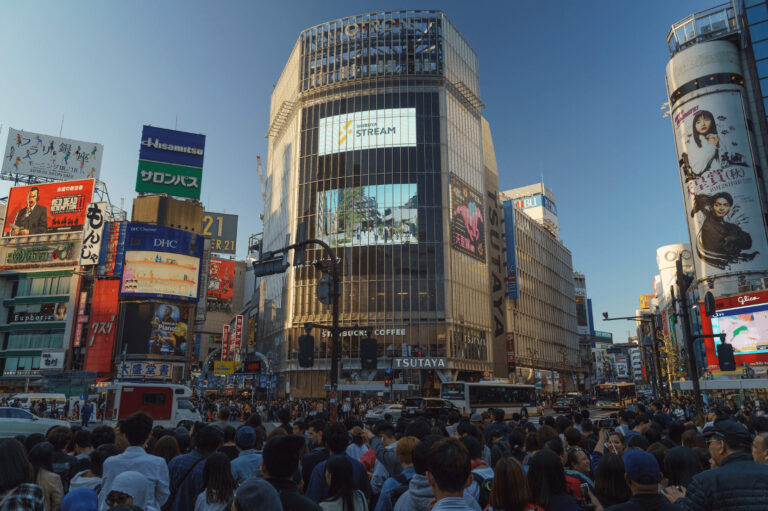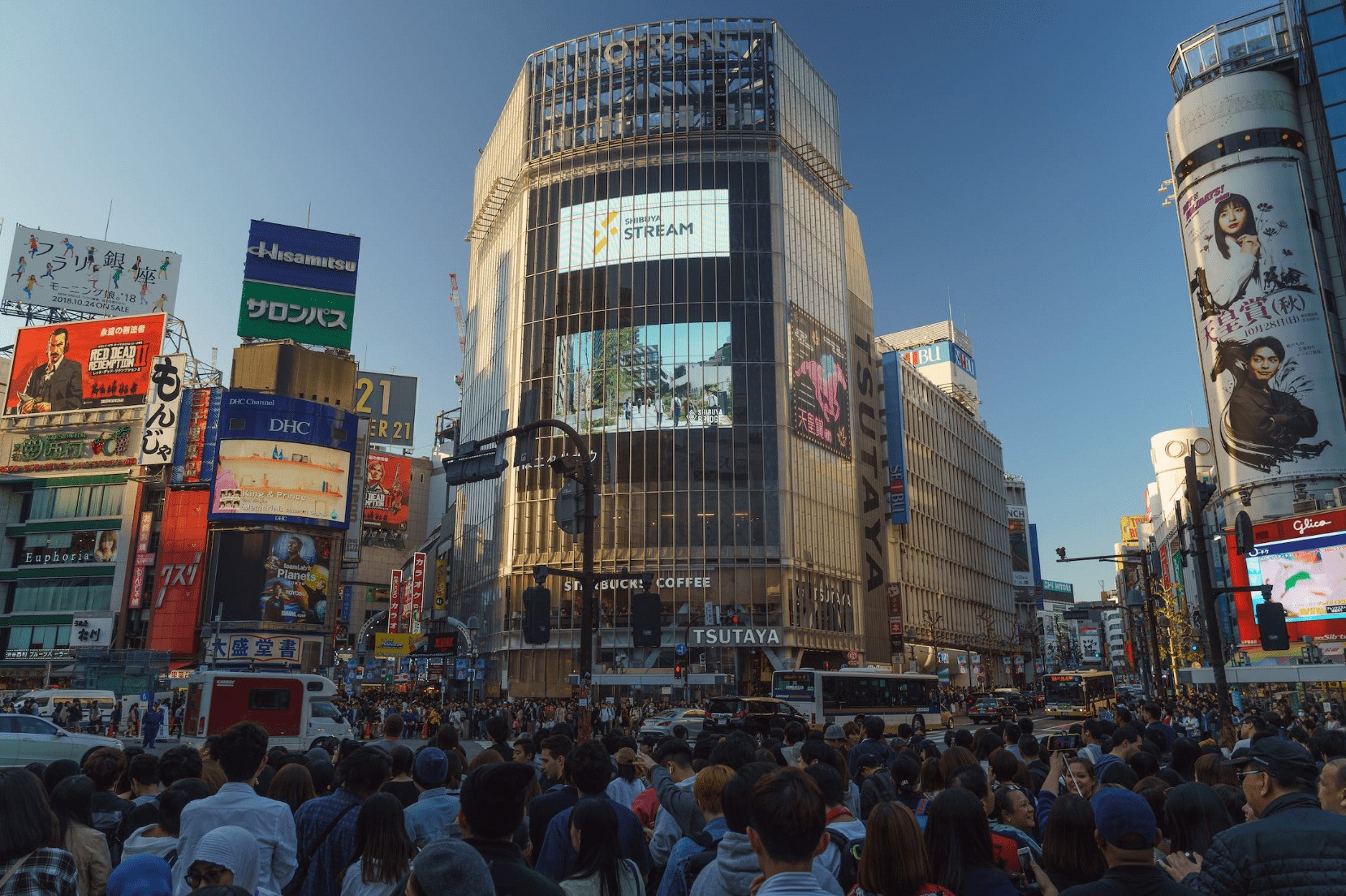

Guide to Speaking Basic Japanese for Tourists
Learn the 20 Japanese essential phrases every tourist needs to know. From greetings and thank-yous to ordering food and asking for directions, you’ll have everything you need to get around and communicate with confidence.
Are you ready to embark on an unforgettable adventure in Japan? This enchanting land has a rich culture, breathtaking scenery, and mouth-watering cuisine. But how can you truly immerse yourself in this unique experience without being able to communicate with the locals? Fear not, because we’ve got you covered!
We’ve compiled a list of 20 Japanese essential phrases that every tourist should know to navigate Japan. From ordering food to shopping and having fun. We hope that these 20 Japanese essential phrases will help you express yourself and show respect for the local culture.
By the end of this article, you’ll be speaking the 20 Japanese essential phrases and making memories that will last a lifetime. Get ready for the trip of a lifetime in Japan!
Greetings and Basic Phrases
First, you must know how to greet people and say some basic phrases in Japanese. These are the most common and polite ways to start and end a conversation and show gratitude or apology.
- Hello- Konnichiwa (こんにちは)
This is the most general way to say hello in Japanese. You can use it at any time of the day with anyone you meet. Pronunciation: ko-n-ni-chi-wa. - Good morning– Ohayou gozaimasu (おはようございます)
It is the formal way to say good morning in Japanese. You can use it when you meet someone for the first time in the morning or want to show respect. Pronunciation: o-ha-yo-u go-za-i-ma-su. - Good evening– Konbanwa (こんばんは)
This is the formal way to say good evening in Japanese. You can use it when you meet someone for the first time in the evening or want to show respect. Pronunciation: kon-ban-wa. - Good night– Oyasumi nasai (おやすみなさい)
This is the formal way to say good night in Japanese. You can use it when you are going to bed or when you are leaving someone at night. Pronunciation: o-ya-su-mi na-sa-i. - Thank you– Arigatou gozaimasu (ありがとうございます)
This is the formal way to say thank you in Japanese. You can use it when someone does something for you or when you want to show appreciation. Pronunciation: a-ri-ga-to-u go-za-i-ma-su. - You’re welcome– Dou itashimashite (どういたしまして)
This is the formal way to say you’re welcome in Japanese. You can use it when someone thanks you for something or when you want to be polite. Pronunciation: do-u i-ta-shi-ma-shi-te. - Excuse me/Sorry– Sumimasen (すみません)
It is a valuable word that can mean both excuse me and sorry in Japanese. You can use it when you want to get someone’s attention, when you want to apologize for something, or when you want to pass through a crowd. Pronunciation: su-mi-ma-sen. - I don’t understand– Wakarimasen (わかりません)
It is simple to say you don’t understand something in Japanese. You can use it when someone says something you don’t comprehend or want them to repeat or explain something. Pronunciation: wa-ka-ri-ma-sen. - I don’t speak Japanese– Nihongo o hanashimasen (日本語を話しません)
It is a straightforward way to say that you don’t speak Japanese. You can use it when someone speaks to you in Japanese or when you want them to speak English instead. Pronunciation: ni-hon-go o ha-na-shi-ma-sen. - Do you speak English?– Eigo o hanashimasu ka? (英語を話しますか?)
It is a simple way to ask if someone speaks English in Japanese. You can use it when you want to communicate with someone who doesn’t speak your language or when you want them to switch to English. Pronunciation: e-i-go o ha-na-shi-ma-su ka.
Food and Drink Phrases
Food and drink are among the best things about traveling to Japan. Indeed, Japan has a variety of delicious dishes and beverages you can enjoy, from sushi and ramen to sake and tea. However, you might need some phrases to order, pay, and compliment the food and drink in Japanese. Some of the most useful ones are as follows;
- I would like __, please: __ o kudasai (__をください)
It is a polite way to order something in Japanese. You can use it when asking for a specific item, such as a dish, a drink, or a condiment. Also, you need to insert the name of the item before o kudasai. Pronunciation: o ku-da-sa-i. - I would like the chef’s recommendation, please: Omakase de kudasai (お任せでください)
It is a particular way to order something in Japanese, especially for sushi. It means you trust the chef to choose the best items for you based on their skill and availability. Pronunciation: o-ma-ka-se de ku-da-sa-i. - Cheers: Kanpai (乾杯)
It is the standard way to say cheers in Japanese. You can use it when you want to toast with someone or when you want to celebrate something. Pronunciation: kan-pa-i. - What is this?: Kore wa nan desu ka? (これは何ですか?)
This is a simple way to ask what something is in Japanese. You can use it to learn more about a dish, drink, or unfamiliar ingredient. Pronunciation: ko-re wa nan desu ka. - This is delicious: Kore wa oishii desu (これはおいしいです)
It is an excellent way to compliment the food or drink in Japanese. You can use it to express your satisfaction or appreciation for something you are eating or drinking. Pronunciation: ko-re wa o-i-shi-i de-su. - I’m full: Onaka ga ippai desu (お腹がいっぱいです)
It is a polite way to say that you are full in Japanese. You can use it when you want to stop eating or drinking or when you want to say no to an offer for more food or drink. Pronunciation: o-na-ka ga ip-pa-i de-su. - The bill, please: Okaikei kudasai (お会計ください)
It is a polite way to ask for the bill in Japanese. You can use it to pay for your food or drink at a restaurant or a bar. Pronunciation: o-ka-i-ke-i ku-da-sa-i.
Time-Related Phrases
Another thing that you need to know when traveling to Japan is how to talk about time. Time is an essential aspect of Japanese culture, as people tend to be punctual and respectful of schedules. You might need phrases to ask or tell the time and words to refer to different parts of the day.
- What time is it now?: Ima nanji desu ka? (今何時ですか?)
This is a simple way to ask what time it is now in Japanese. You can use it when you want to check the current time or when you want to confirm an appointment or a reservation. Pronunciation: ima nan-ji desu ka. - At what time?: Nanji ni? (何時に?)
It is a simple way to ask when something will happen in Japanese. You can use it when you want to know the schedule of an event, a train, or a bus, or when you wish to arrange a meeting or a date. Pronunciation: nan-ji ni. - Morning: Asa (朝)
This is the word for morning in Japanese. You can use it when referring to the early part of the day, from sunrise until noon. Pronunciation: a-sa - Today: Kyou (今日)
It is the word for today in Japanese. You can use it when you want to refer to the present day or when you want to talk about your plans or activities for the day. Pronunciation: kyo-u. - Tomorrow: Ashita (明日)
It is the word for tomorrow in Japanese. You can use it when you want to refer to the next day or when you want to talk about your plans or activities for tomorrow. Pronunciation: a-shi-ta.
Transportation Phrases
Public transportation is one of the most convenient and efficient ways to travel around Japan. Japan has an extensive network of trains, buses, subways, and taxis that can take you anywhere. However, you might need some phrases to find your way, buy tickets, and ask for directions in Japanese. Some of the most useful ones are the following:
- Where is __?: __ wa doko desu ka? (__はどこですか?)
This is a simple way to ask where something is in Japanese. You can use it to find a place, such as a station, a bus stop, or a landmark. You must insert the place’s name before wa doko desu ka. Pronunciation: wa do-ko desu ka. - How do I get to __?: __ ni wa dou yatte ikimasu ka? (__にはどうやって行きますか?)
This is a simple way to ask how to get to somewhere in Japanese. You can use it to know the best route or mode of transportation to your destination. You must insert the place’s name before ni wa dou yatte ikimasu ka. Pronunciation: ni wa do-u yat-te i-ki-ma-su ka. - How much is the fare?: Unchin wa ikura desu ka? (運賃はいくらですか?)
This is a simple way to ask how much the fare is in Japanese. You can use it when you want to know how much you need to pay for a train, bus, subway, or taxi ride. Pronunciation: un-chin wa i-ku-ra desu ka. - Where can I buy a ticket?: Kippu wa doko de kaemasu ka? (切符はどこで買えますか?)
It is a simple way to ask in Japanese where you can buy a ticket. You can buy a train, bus, subway, or attraction ticket. Pronunciation: kip-pu wa do-ko de ka-e-ma-su ka. - I would like a one-way ticket to __, please: __ made no katamichi kippu o kudasai (__までの片道切符をください)
It is a polite way to buy a one-way ticket somewhere in Japan. You can use it to buy a ticket at a vending machine or a ticket counter. Insert the place’s name before making no katamichi kippu o kudasai. Pronunciation: ma-de no ka-ta-mi-chi kip-pu o ku-da-sa-i. - I would like a round-trip ticket to __, please: __ made no oufuku kippu o kudasai (__までの往復切符をください)
This is a polite way to buy a round-trip ticket to somewhere in Japan. You can use it to buy a ticket at a vending machine or a ticket counter. You must insert the place’s name before making no oufuku kippu o kudasai. Pronunciation: ma-de no o-u-fu-ku kip-pu o ku-da-sa-i. - Please stop here: Koko de tome te kudasai (ここで止めてください)
In Japanese, asking the driver to stop here is polite. You can use it when you want to get off at a specific place on a bus or a taxi. Pronunciation: ko-ko de to-me te ku-da-sa-i.
Conclusion
Discovering some basic expressions or languages can transform your trip to Japan into an unforgettable adventure. Not only will you be able to connect with the locals, but you’ll also show a genuine interest and respect for their language. Picture yourself ordering delicious food, navigating the city, and effortlessly communicating with the friendly people around you. With these essential phrases for tourists, you can speak with them and have the time of your life in Japan. So get ready for an incredible journey filled with endless possibilities!
If you have any questions or comments on the 20 Japanese Essential Phrases for Every Tourist, feel free to leave them below. Thanks for reading, and I’ll see you at the next one. Have a fantastic time in Japan!




